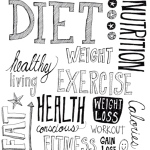We all know that what you eat makes a huge difference to your health, but what about when you eat? I’m very pleased to say that I’m a co-author on a really interesting new scientific paper “Meal Frequency and Timing in Health and Disease” published on 17th November in the Proceedings of the National Academy of Sciences, USA. It’s a review of the latest research showing the multiple benefits of intermittent fasting and also the positive impact on health of time restricted feeding (going for longer periods of time without food).
It’s a comprehensive look at the science and makes a powerful case as to why the standard approach, eating three or more meals a day, day in day out, is not the best way to go. It’s also a call to arms, urging policy makers to look at the science and put more money into this hugely important and interesting area of research.
If you have questions, do let me know and I will try to answer.






11:12 am
21 Nov 14